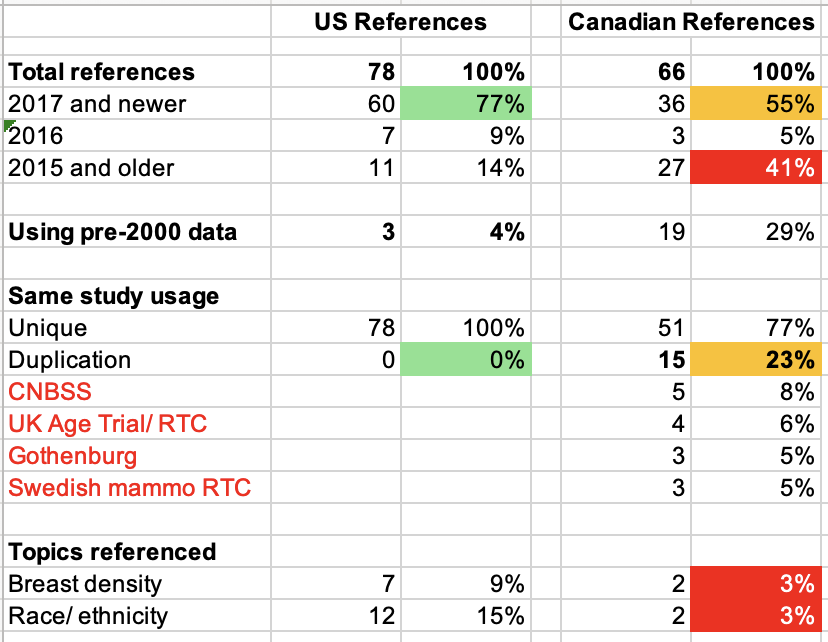As I sat at home this weekend, knowing the hearing at the House of Commons starting today, regarding the newly proposed Breast Cancer Screening Guidelines. Since I can’t testify, I felt the need to tangibly highlight to others why I feel these guidelines fail Canadian women.
So, I did what any other bored de novo stage 4 breast cancer patient would do. I decided to read through and compare the Canadian Task Force on Preventative Health Care’s 2024 Proposed Breast Cancer Screening Guidelines references to the US Task Force on Preventative Services’ 2024 Breast Cancer Screening Guidelines bibliography.
Why? Because the US felt there was enough new evidence to change their breast cancer screening guidelines to start at 40 instead of 50. And ten of the thirteen Canadian jurisdictions also changed their guidelines to start screening at 40, with the exception of Alberta, which dropped it to 45.
What did the US and the of our thirteen Canadian jurisdictions know that the Canadian Task Force didn’t?
Natalie Kwadrans – June 8, 2024
I figured the answers would lie in the research they used to inform their recommendations. I was right. It was disheartening and downright maddening.
I created a spreadsheet to compare the sources each Task Force used and did a high-level analysis of the research simply by reviewing the titles. Therefore, it’s not a perfect analysis. I was trying to see what new research was being used by the Canadian Task Force. I was extremely disappointed and let down by the content, as what the Canadian Task Force used wasn’t reflective what is available. And that lack of research comes at the expense of Canadian women’s lives.
Based on this Twitter post from July 31, 2023, The Canadian Task Force preferred to ask “the masses” do the legwork for them. I’m not sure why the Federal Government paid to expedite the guidelines. 41% of their sources included data from before the year 2000!
Here is a quick side-by-side comparison between the two Task Forces’ bibliography. It is clear that not all research is equal.

After doing this analysis, three things stand out to me
- 41% of the research used by the Canadian Task Force predates the year 2000;
- 23% of the research listed re-uses the same original data, so the results will obviously skew to the data being reused. What is worse, is they are using a discredited study, the Canadian National Breast Screening Study, or CNBSS for short, from the 1980s;
- there was very little research included on breast density and race/ ethnicity.
Do you want to see the two bibliographies for yourself? Here is a link to my spreadsheet, as well as a short video that explains my document.
If you find this analysis interesting, you can always show your appreciation by buying me a coffee or contributing towards some of my cancer treatment therapies.

